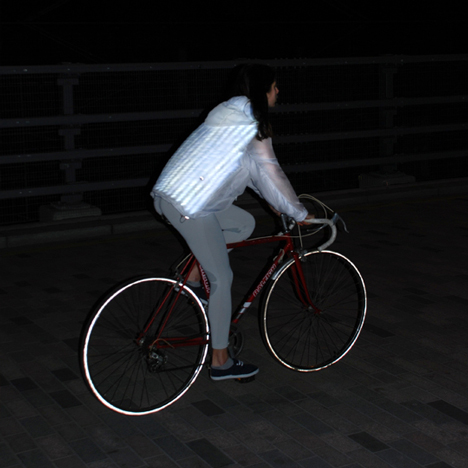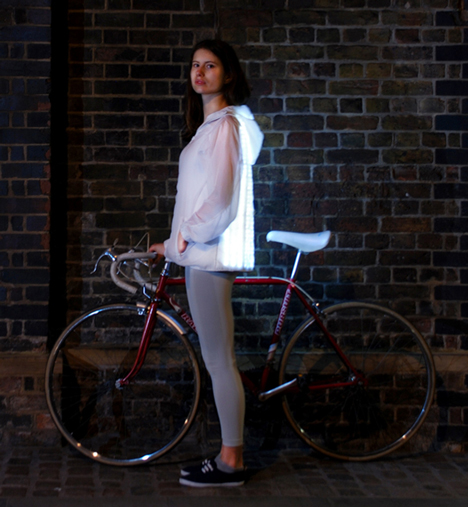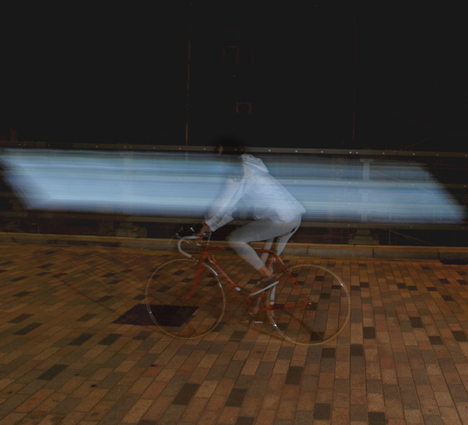Deimatic Clothing mimics animal defence mechanisms to get women cycling
Central Saint Martins graduate Will Verity has designed a jacket with LEDs that flash faster as cars come closer to help women overcome fears of cycling.
Only 25 per cent of journeys by bike in the UK are made by women – versus 55 per cent in the Netherlands and similarly equal numbers in other countries where cycling is more prominent – according to UK government report Get Britain Cycling.
In response to the report's calls to "increase cycle use from less than two per cent of journeys in 2011 to 25 per cent by 2050", Will Verity looked into what was stopping women taking to their bikes.
He found that in the UK, cyclists are overwhelmingly white, male, and between the ages of 25 and 44.
Fear of accidents was identified as the biggest barrier preventing women from joining their ranks – above more tangible barriers such as not owning a bicycle.

Verity cast cyclists in the role of prey and drivers in the role of predators to explore the threatening and startling "deimatic" behaviour used by animals to scare off and distract predators, such as suddenly displaying conspicuous eyespots, as a potential solution to the problem.
The resulting jacket features proximity sensors embedded into its back that control an LED panel.
If a vehicle gets too close to the cyclist, the jacket will respond with intermittent flashing, which gets faster as the vehicle gets closer. The garment is made from waterproof lightweight technical fabrics.

"The aim was to not only develop a responsive garment but also to change the visual language of cycling jackets," Verity told Dezeen. "The current language of high-visibility jackets is too similar to road signs, highway maintenance works and other barriers in the built environment – resulting in cyclists being seen as obstacles rather than people."
"The Deimatic Clothing jacket is trying to move away from this visual language and develop new perceptions, with the aim of giving cyclists more space on the road and a safer riding experience," he added.
Deimatic Clothing was developed as part of Will Verity's graduate project for his BA Product Design course at Central Saint Martins.

It was displayed at Part 2 of the New Designers exhibition at London's Business Design Centre earlier this month.
Designers and architects are constantly developing ideas to improve cycling safety in the UK, and the volume of proposals has increased following a spate of deaths on London's roads earlier this year.
Norman Foster promoted a concept to build a network of elevated cycle pathways above London's railways and a cycling organisation came up with a concept for a lorry with no blindspot to reduce the number of cyclists killed in collisions.